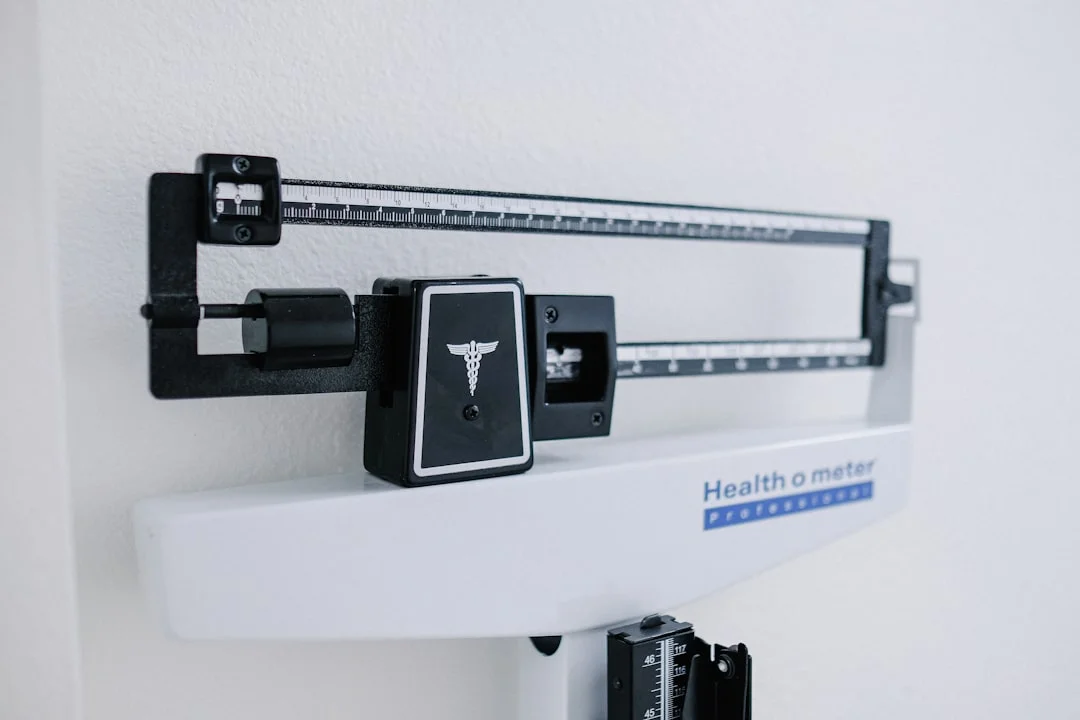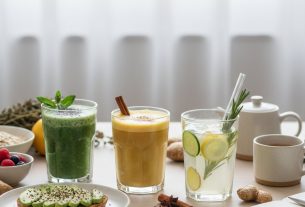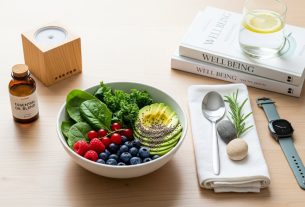Estimated Reading Time: 9 minutes
WW all crave a good night’s rest.
That feeling of waking up refreshed, ready to tackle the day, is something we often take for granted – until we don’t get it.
Insomnia, restless nights, and difficulty falling asleep are challenges many of us face.
While countless sleep aids exist, the power of what we eat is often overlooked.
Believe it or not, incorporating the best foods for better sleep into your diet could be the key to unlocking those precious hours of shut-eye you’ve been missing.
I remember a period a few years ago when I struggled with persistent insomnia.
I tried everything – blackout curtains, white noise machines, and even those expensive memory foam pillows. Nothing seemed to work.
Then, a friend mentioned the connection between diet and sleep. Skeptical but desperate, I started researching and experimenting with my food choices.
The results were remarkable. And that’s why I’m eager to share what I’ve learned.
This isn’t just about eating’healthy’; it’s about consciously choosing foods that actively support your body’s natural sleep processes.
Before diving into the specific best foods for better sleep, let’s briefly touch on the science behind it.
Our bodies have an internal clock, the circadian rhythm, which regulates our sleep-wake cycle.
Several neurotransmitters, like serotonin and melatonin, play crucial roles.
Serotonin is a mood stabilizer that can be converted into melatonin, the sleep hormone.
Dietary choices can significantly impact the production and regulation of these neurotransmitters.
Think of it like this: your body is a finely tuned machine.
Just as a car needs the right fuel, your body requires the right nutrients to function optimally, including sleeping well.
A diet rich in certain vitamins, minerals, and amino acids provides the building blocks for these sleep-promoting chemicals.

Conversely, a diet heavy in processed foods, sugar, and caffeine can disrupt these processes, making it harder to fall asleep and stay asleep.
This brings us to a crucial point: it’s not just about *what* you eat, but also about the *timing* of your meals and snacks.
Now, let’s explore some of the best foods for better sleep. These selections are packed with nutrients that support restful sleep.
Of course, a balanced diet is paramount, but incorporating these items can truly make a difference.
Nuts and seeds, particularly almonds and walnuts, are nutritional powerhouses.
They are excellent sources of magnesium, a mineral known for its relaxing properties.
Magnesium helps regulate the nervous system and can reduce cortisol levels, the stress hormone.
Walnuts, in particular, contain melatonin, which aids in sleep regulation.
Example: I used to snack on a handful of almonds about an hour before bed.
It wasn’t an immediate fix, but over time, I noticed a significant improvement in my sleep quality.
This small, fuzzy fruit might seem unassuming, but it’s packed with sleep-promoting properties.
Studies have shown that eating kiwifruit can improve sleep onset, duration, and efficiency.
Kiwifruit is rich in antioxidants and serotonin, both of which contribute to better sleep.
Salmon, tuna, and other fatty fish are brimming with Vitamin D and omega-3 fatty acids.
Vitamin D is essential for regulating sleep, and omega-3s have been linked to better sleep.
One study even suggested people with higher omega-3 levels slept longer and had fewer nighttime awakenings.
This recommendation is a classic, and for good reason.
Warm milk contains tryptophan, an amino acid that the body uses to make serotonin and melatonin.
Chamomile tea is known for its calming effects and can help reduce anxiety, promoting relaxation before bed.

Note: While milk might not work for everyone (some people are lactose intolerant), the psychological effect of the ritual, combined with the tryptophan, can be beneficial.
Tart cherries are a natural source of melatonin.
Drinking a small glass of tart cherry juice before bed can help increase melatonin levels, making it easier to fall asleep and stay asleep.
Bananas are rich in potassium and magnesium, both of which help muscles relax. They also contain tryptophan.
If you’re craving a bedtime snack, a banana is a great option.
Chamomile tea is mentioned above, but other options like lavender tea can also have a calming effect.
The ritual of sipping warm tea can be soothing and signals to your body that it’s time to wind down.
Just as certain foods promote sleep, others can sabotage your efforts. Minimizing these items can greatly improve your chances of a good night’s rest.
This is a crucial part of the equation.
This one is obvious, but it bears repeating.
Caffeine, found in coffee, tea, energy drinks, and even some sodas, is a stimulant that can interfere with sleep.
Avoid caffeine consumption at least six hours before bedtime.
While alcohol might initially make you feel sleepy, it disrupts sleep later in the night.
It interferes with your sleep cycle, leading to fragmented sleep and daytime fatigue.
Sugary foods can cause blood sugar spikes and crashes, disrupting your sleep cycle. Avoid sugary snacks and desserts before bed.
Eating a heavy meal right before bed can cause indigestion and make it difficult to fall asleep.
Try to eat your last meal at least two to three hours before bedtime.
Diet is only one piece of the puzzle.
Creating a relaxing bedtime routine can further enhance the benefits of eating the best foods for better sleep. Here’s a sample routine:

This is just an example, of course, and you can personalize it to suit your lifestyle. Consistency is key.
A: No, eating the best foods for better sleep doesn’t guarantee perfect sleep every night.
Factors like stress, underlying health conditions, and your overall sleep hygiene also play crucial roles.
However, incorporating these foods can significantly *improve* your chances of restful sleep and enhance the positive effects of other sleep-promoting practices.
It’s about setting yourself up for success.
A: Yes and no. Eating some of these foods, like a handful of almonds or a banana, about an hour before bed can be beneficial.
However, the overall pattern of your diet is more important than the timing of individual snacks.
Try to prioritize sleep-promoting foods throughout the day to maintain balanced blood sugar levels and ensure your body has the necessary nutrients to support healthy sleep processes.
A: No, that would be a mistake!
Focus on building a dietary pattern that prioritizes the best foods for better sleep throughout the *entire* day.
Your dinner and bedtime snack are crucial times to incorporate these choices, but maintaining balanced nutrition all day long sets the stage for better sleep at night.
This holistic approach provides your body with the resources it needs, consistently supporting the natural sleep cycle.
A: Don’t worry! The best foods for better sleep are not a one-size-fits-all solution.
If you have allergies or intolerances, focus on other options.
For example, if you’re allergic to nuts, try incorporating more seeds like pumpkin or sunflower seeds.
If dairy bothers you, chamomile tea and tart cherry juice still offer great benefits.
Consult with a healthcare professional to ensure you are getting adequate nutrients while accommodating any dietary restrictions.
A: If you’ve made dietary changes and are still struggling, consider other factors like your sleep environment. Is your bedroom dark, quiet, and cool?
Do you have a comfortable bed and pillow?

Also, consider your daily habits: consistent sleep schedule (even on weekends), daily exercise, and avoiding screens before bed.
If you’re still having trouble, talk to your doctor or a sleep specialist, as they can assess for any underlying conditions like sleep apnea or other medical concerns.
The journey to better sleep isn’t always easy, but it’s certainly achievable.
By consciously incorporating the best foods for better sleep into your diet, avoiding sleep-disrupting choices, and cultivating a relaxing bedtime routine, you can significantly improve your chances of restful nights.
Remember, this is a lifestyle change, not a quick fix. Be patient with yourself, experiment with different foods, and find what works best for you.
It’s about understanding that what you eat can greatly influence your overall sleep quality.
Good sleep isn’t just a luxury, it’s essential for your physical and mental health.
So, start with your next meal and embrace the power of food to unlock a better, more rested you.
Ready to take the next step towards better sleep? Join our newsletter for weekly health tips!
Frequently Asked Questions
Can eating these foods *guarantee* a good night’s sleep?
No, eating the best foods for better sleep doesn’t guarantee perfect sleep every night. Factors like stress, underlying health conditions, and your overall sleep hygiene also play crucial roles.
However, incorporating these foods can significantly *improve* your chances of restful sleep and enhance the positive effects of other sleep-promoting practices. It’s about setting yourself up for success.
Are there any specific times to eat these foods for maximum benefit?
Yes and no. Eating some of these foods, like a handful of almonds or a banana, about an hour before bed can be beneficial. However, the overall pattern of your diet is more important than the timing of individual snacks.
Try to prioritize sleep-promoting foods throughout the day to maintain balanced blood sugar levels and ensure your body has the necessary nutrients to support healthy sleep processes.
I have trouble falling asleep. Should I only eat these foods at night?
No, that would be a mistake! Focus on building a dietary pattern that prioritizes the best foods for better sleep throughout the *entire* day. Your dinner and bedtime snack are crucial times to incorporate these choices, but maintaining balanced nutrition all day long sets the stage for better sleep at night.
This holistic approach provides your body with the resources it needs, consistently supporting the natural sleep cycle.
What if I have allergies or intolerances to some of these foods?
Don’t worry! The best foods for better sleep are not a one-size-fits-all solution. If you have allergies or intolerances, focus on other options. For example, if you’re allergic to nuts, try incorporating more seeds like pumpkin or sunflower seeds.
If dairy bothers you, chamomile tea and tart cherry juice still offer great benefits. Consult with a healthcare professional to ensure you are getting adequate nutrients while accommodating any dietary restrictions.
I’ve tried these foods, but I’m still not sleeping well. What else can I do?
If you’ve made dietary changes and are still struggling, consider other factors like your sleep environment. Is your bedroom dark, quiet, and cool? Do you have a comfortable bed and pillow? Also, consider your daily habits: consistent sleep schedule (even on weekends), daily exercise, and avoiding screens before bed.
If you’re still having trouble, talk to your doctor or a sleep specialist, as they can assess for any underlying conditions like sleep apnea or other medical concerns.



